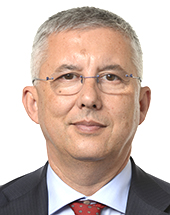
Choisissez la langue de votre document :
- bg - български
- es - español
- cs - čeština
- da - dansk
- de - Deutsch
- et - eesti keel
- el - ελληνικά
- en - English
- fr - français
- ga - Gaeilge
- hr - hrvatski
- it - italiano
- lv - latviešu valoda
- lt - lietuvių kalba
- hu - magyar
- mt - Malti
- nl - Nederlands
- pl - polski
- pt - português
- ro - română
- sk - slovenčina
- sl - slovenščina
- fi - suomi
- sv - svenska
|
| Postup : 2018/0172(COD) |
| Postup dokumentu : A8-0317/2018 | ||||||
Predkladané texty : A8-0317/2018 | Rozpravy : PV 22/10/2018 - 17CRE 22/10/2018 - 17 PV 27/03/2019 - 15 CRE 27/03/2019 - 15 | Hlasovanie : PV 24/10/2018 - 11.12CRE 24/10/2018 - 11.12 Vysvetlenie hlasovaní PV 27/03/2019 - 18.6 Vysvetlenie hlasovaní | Prijaté texty : P8_TA(2018)0411P8_TA(2019)0305 | |||
| Doslovný zápis z rozpráv | |
| Pondelok, 22. októbra 2018 - Štrasburg | Revidované vydanie |
|
| Posledná úprava: 12. decembra 2018 | Právne upozornenie - Politika ochrany súkromia |




































